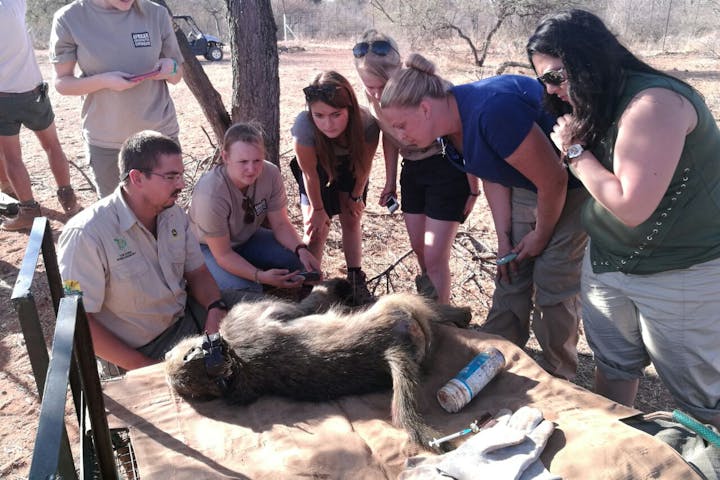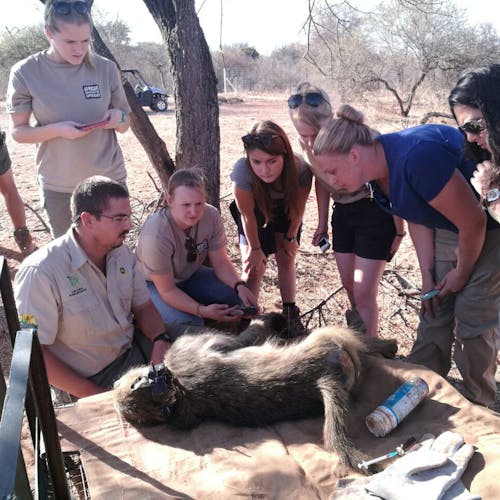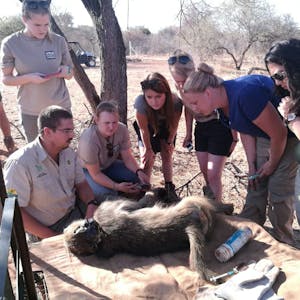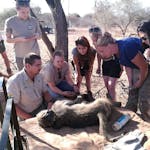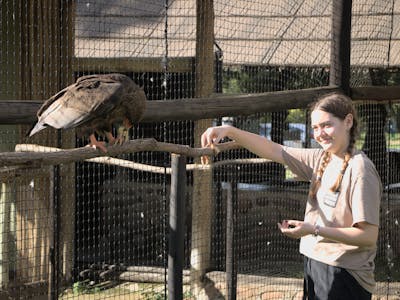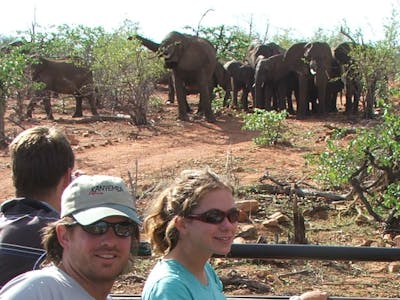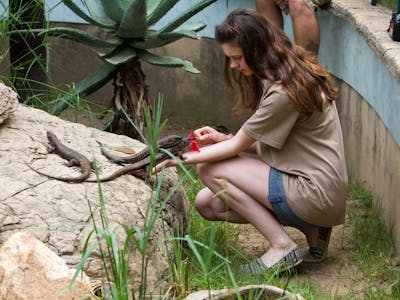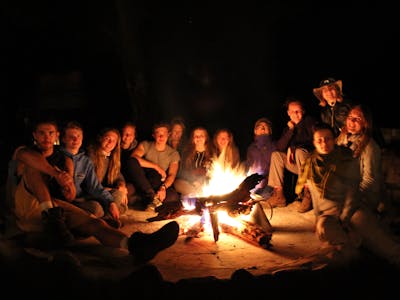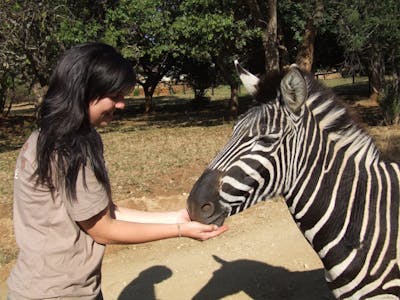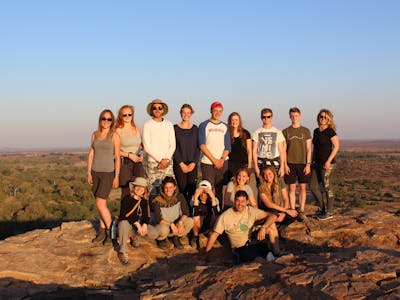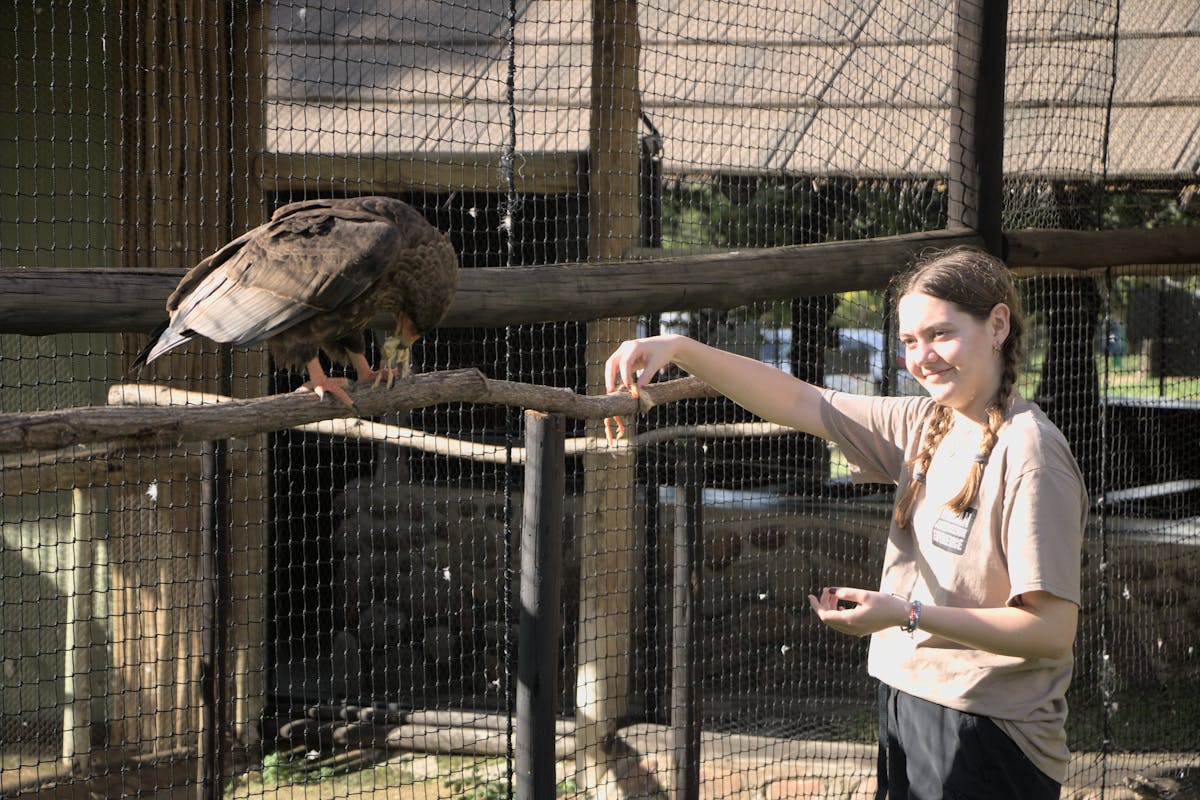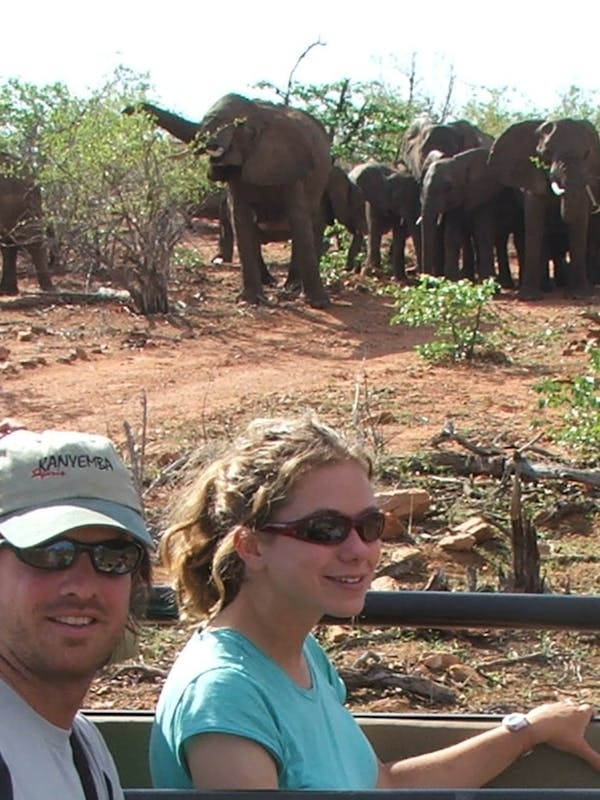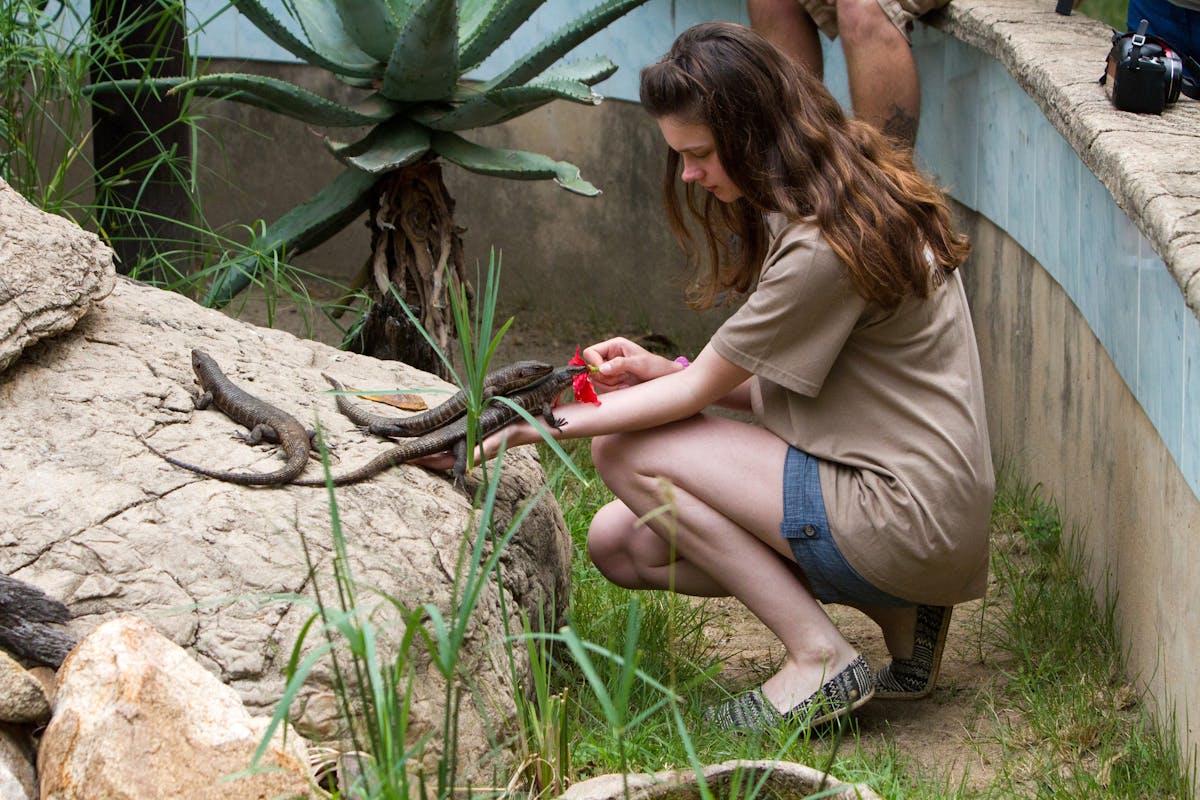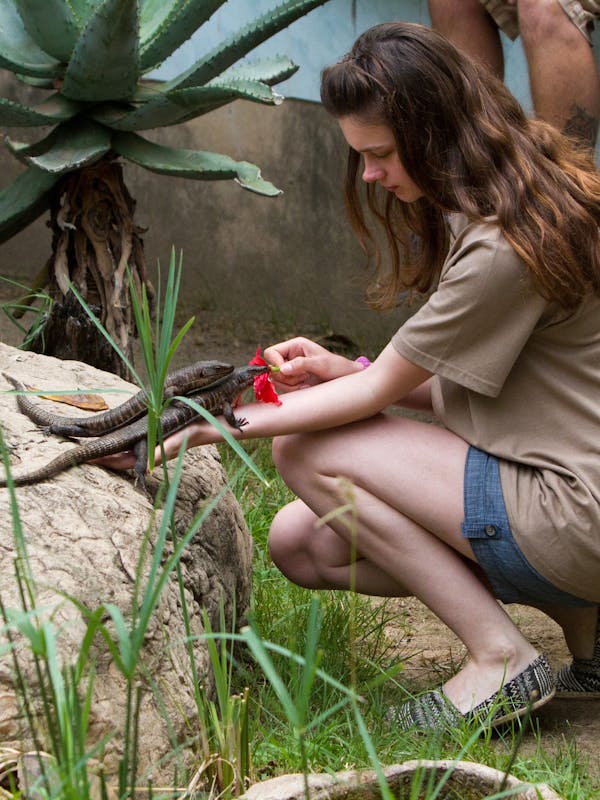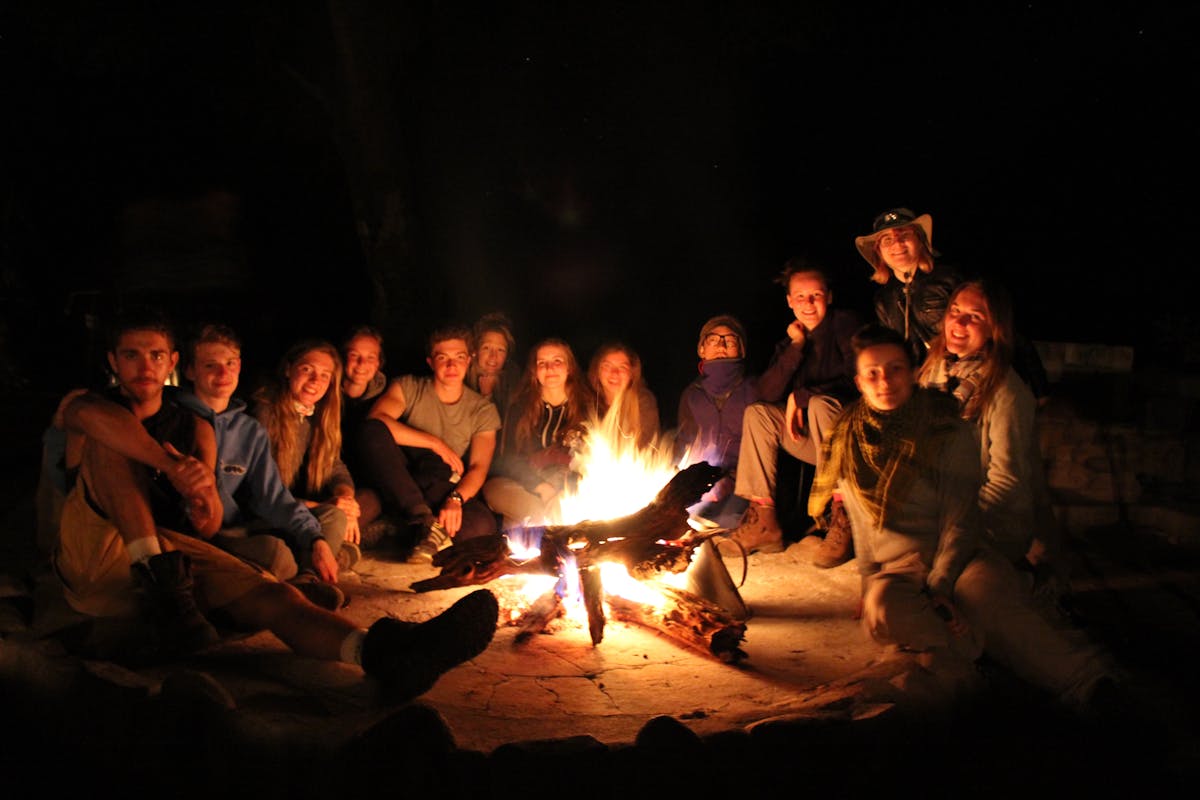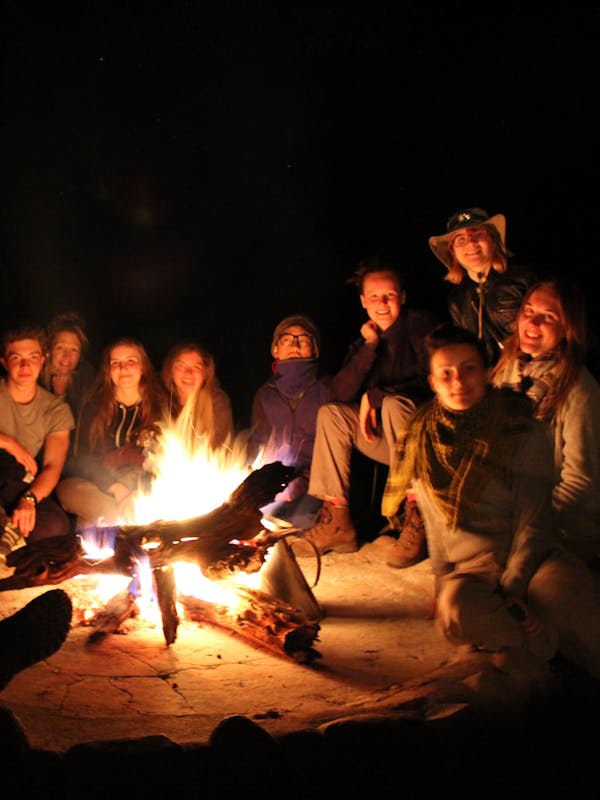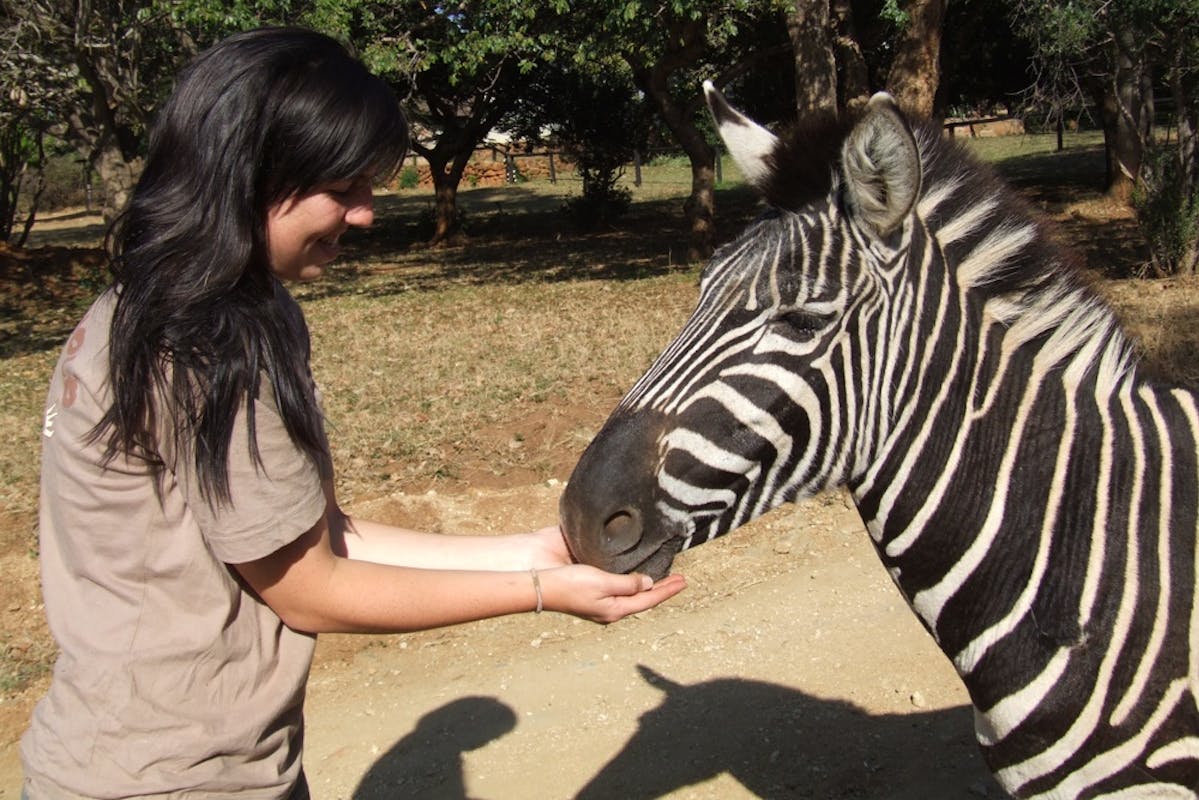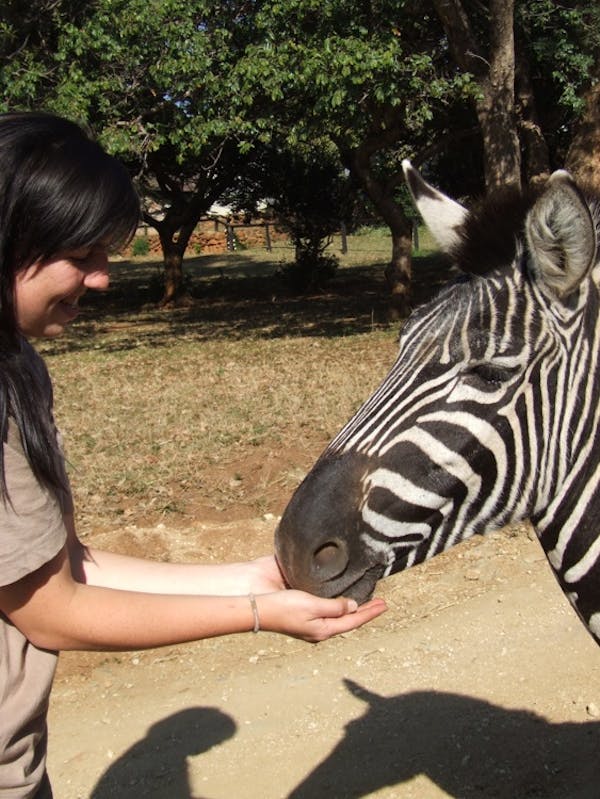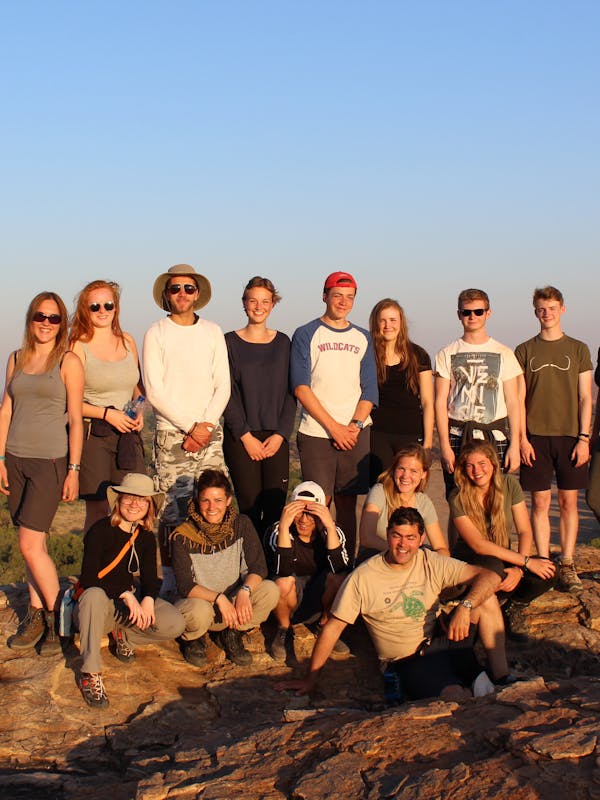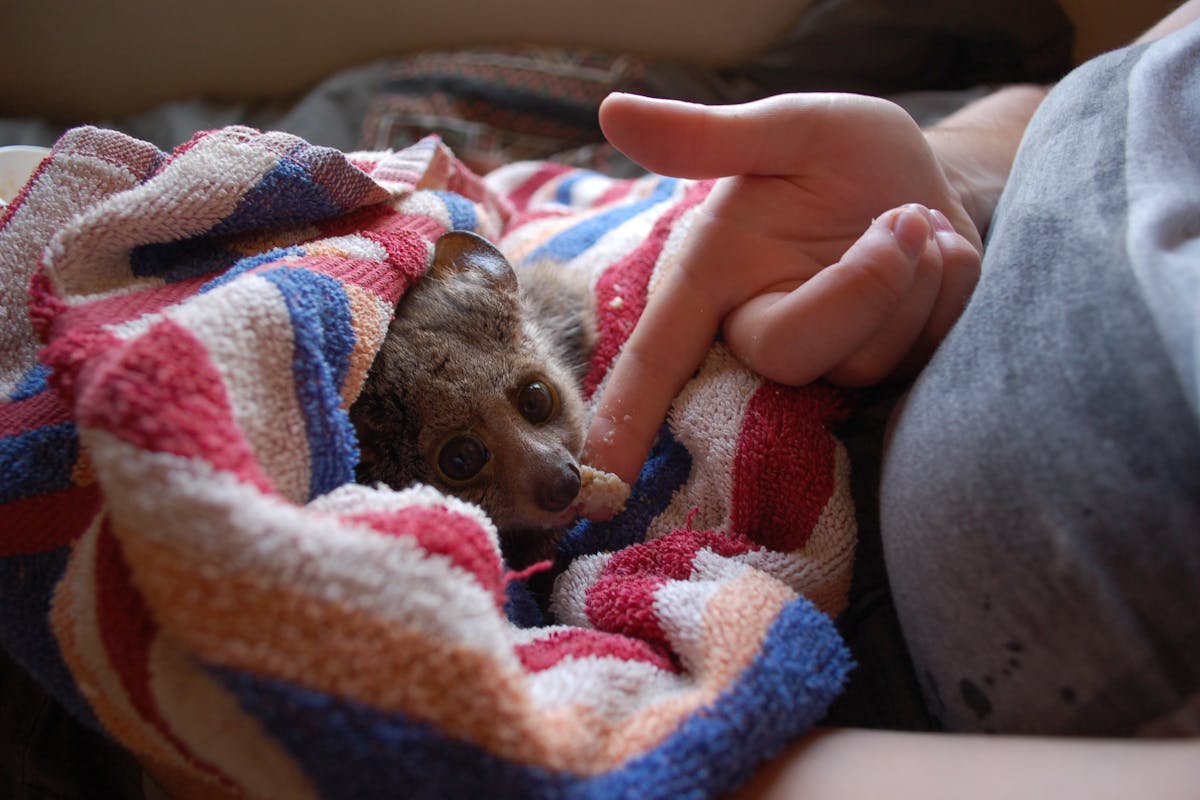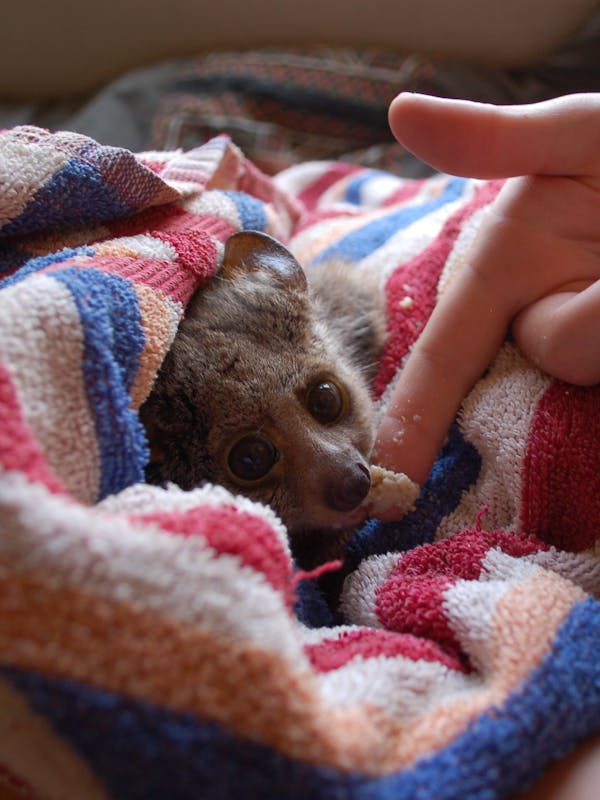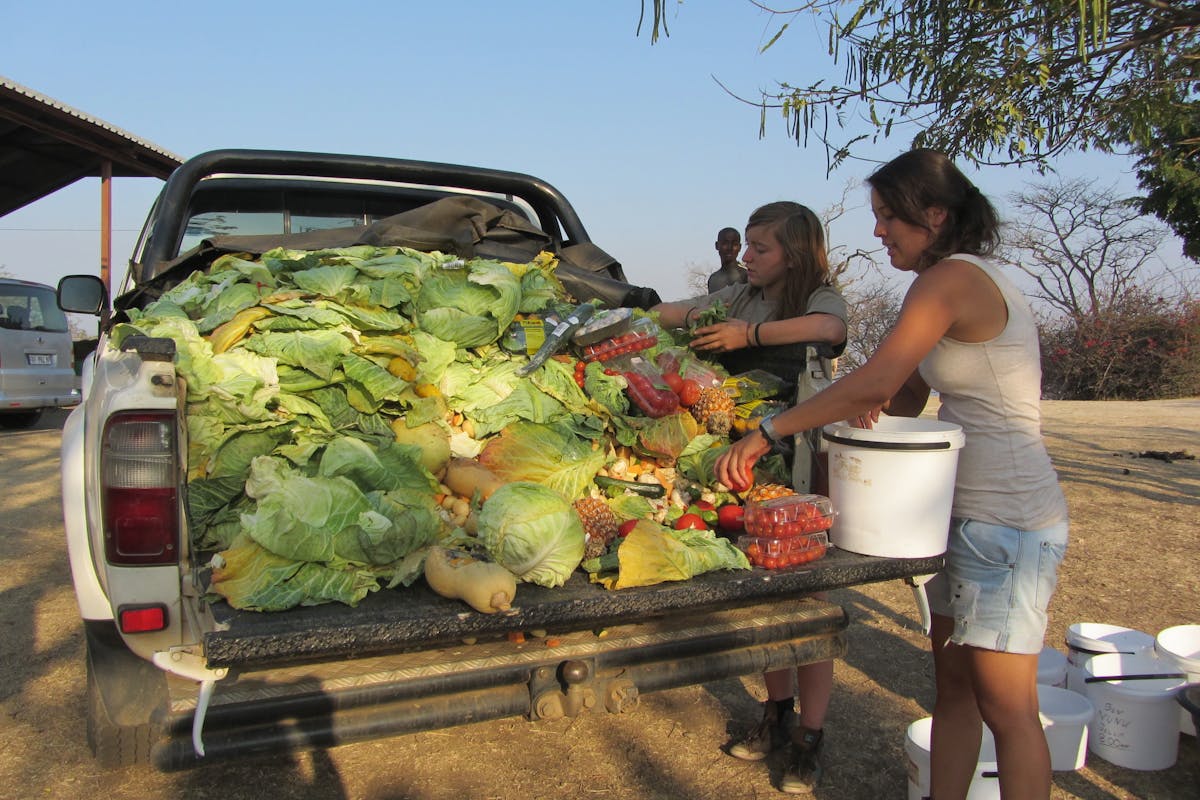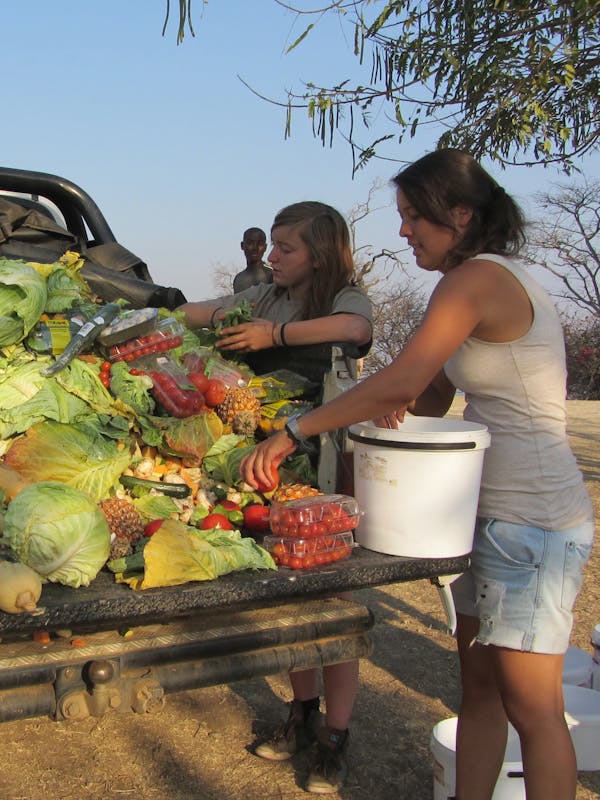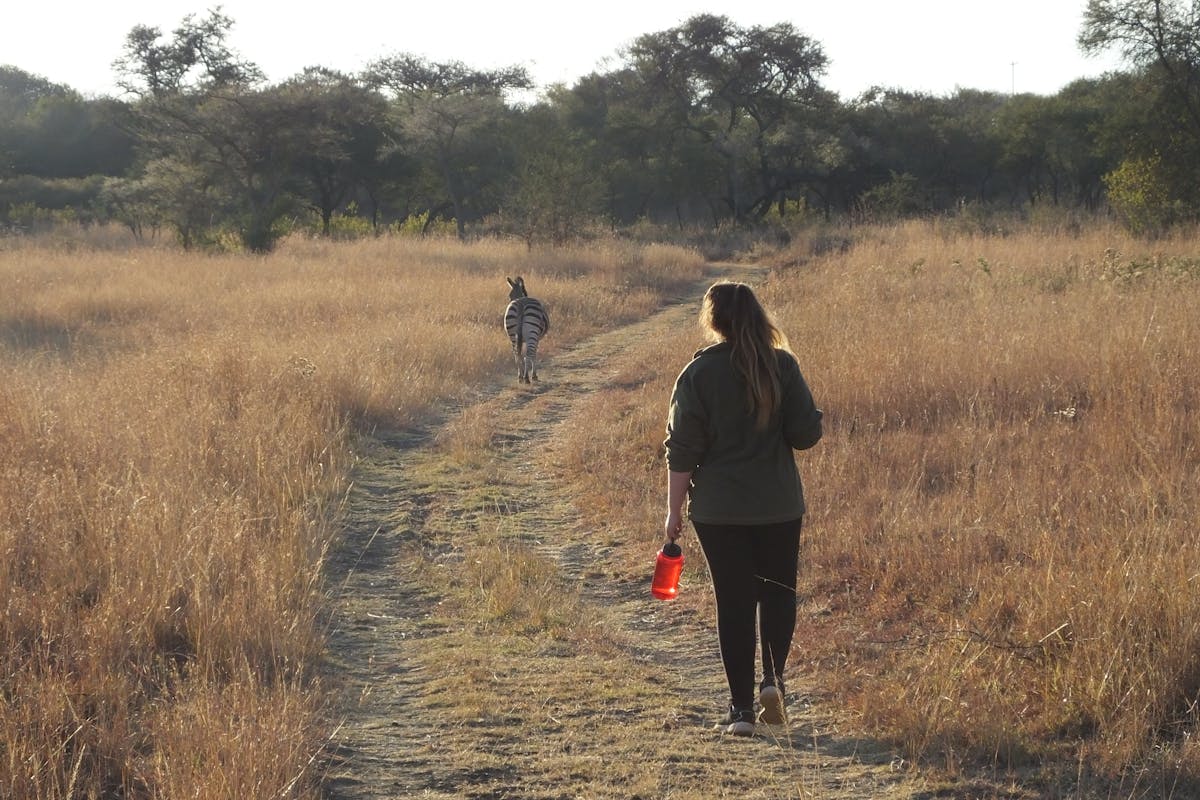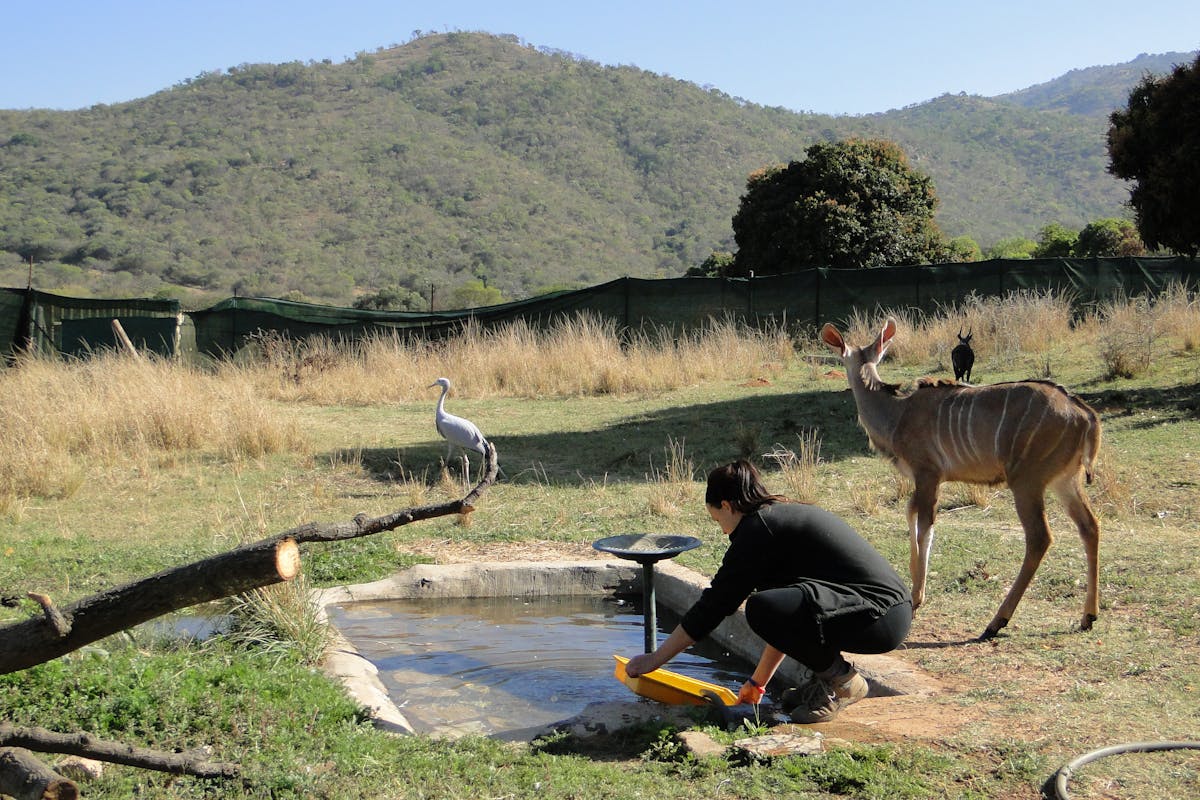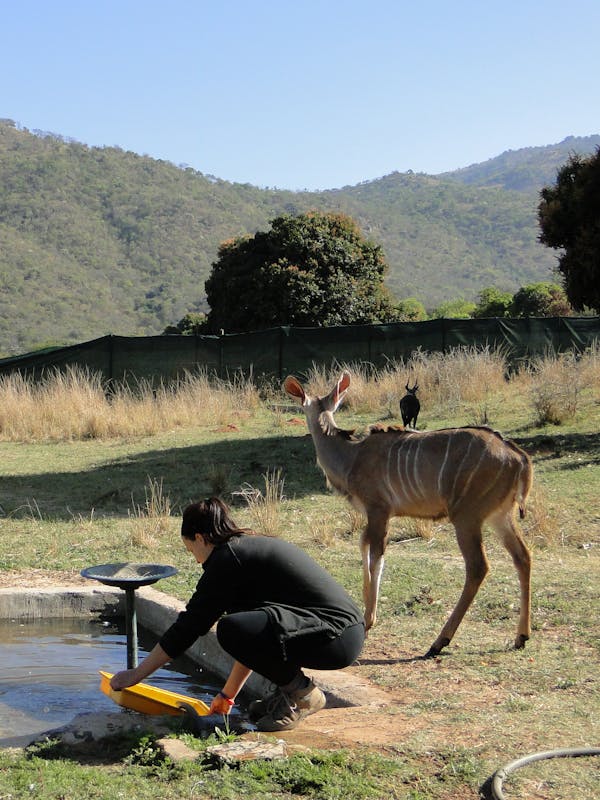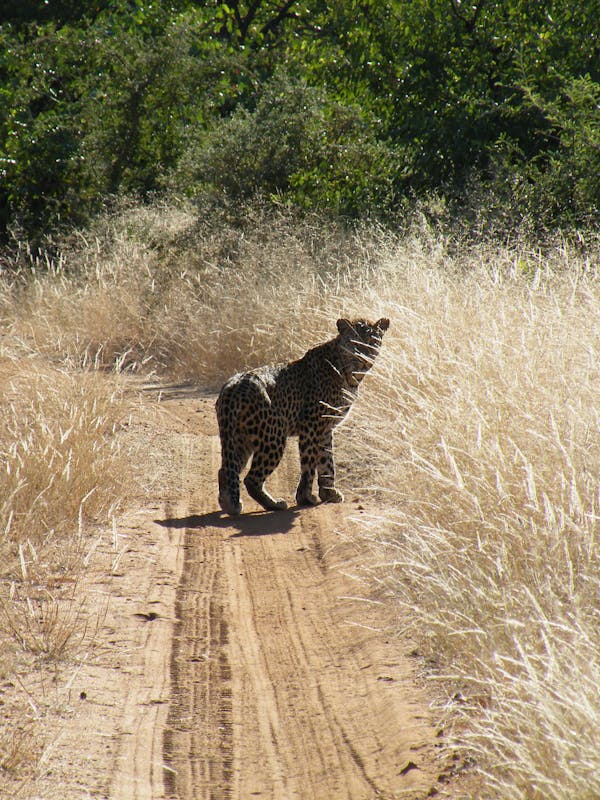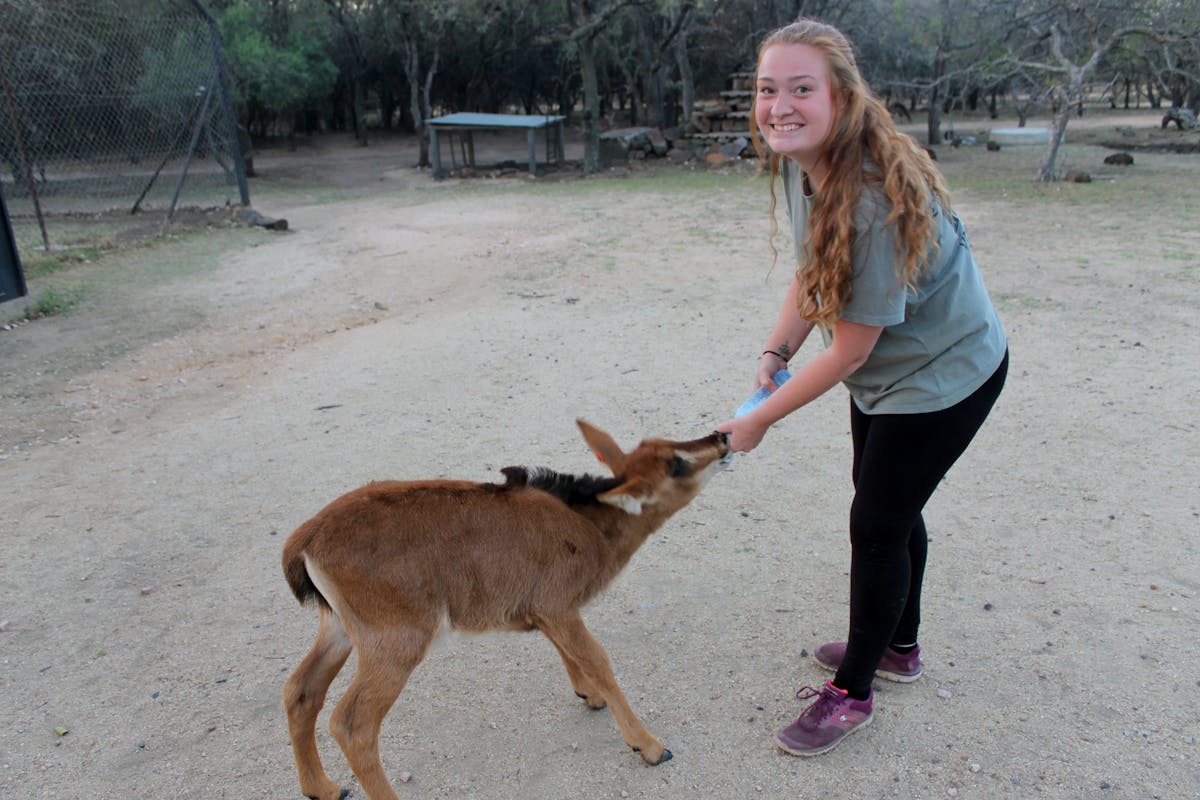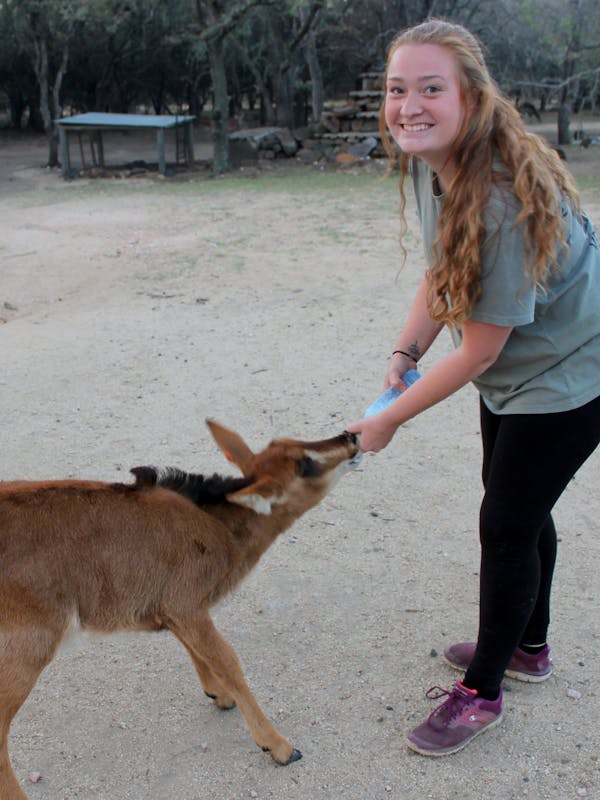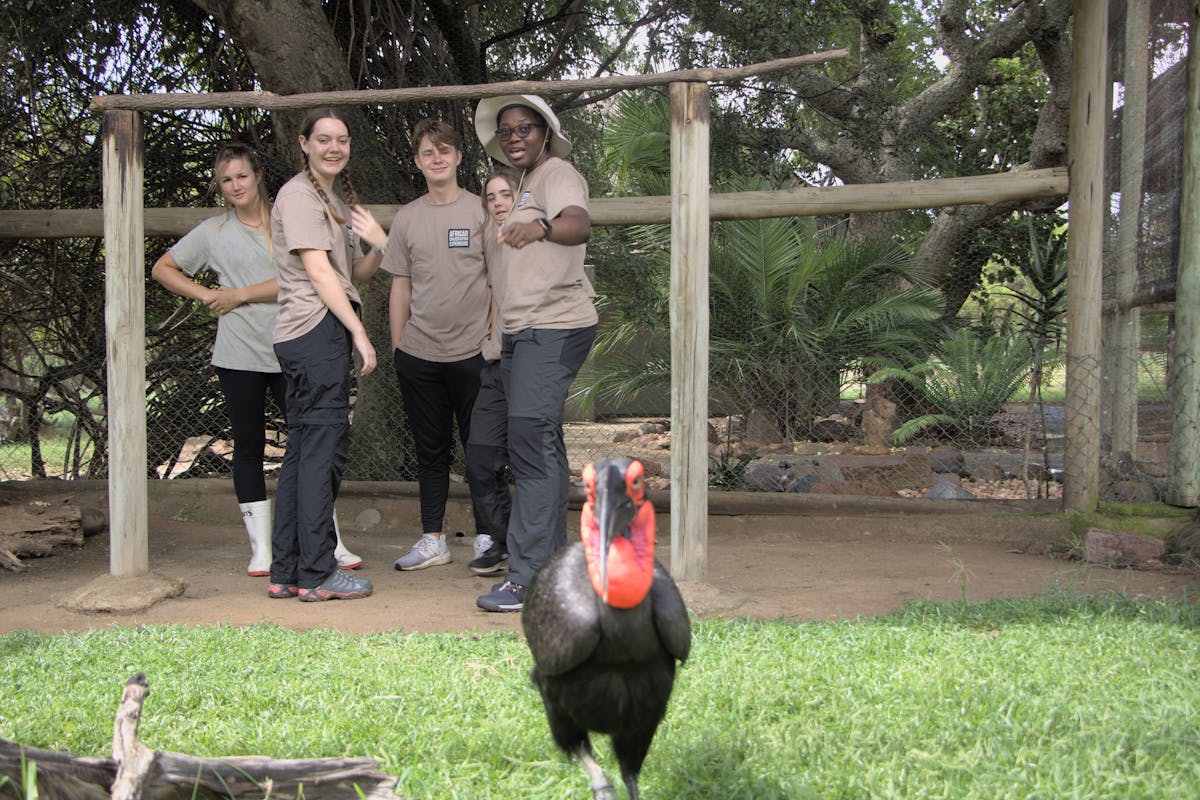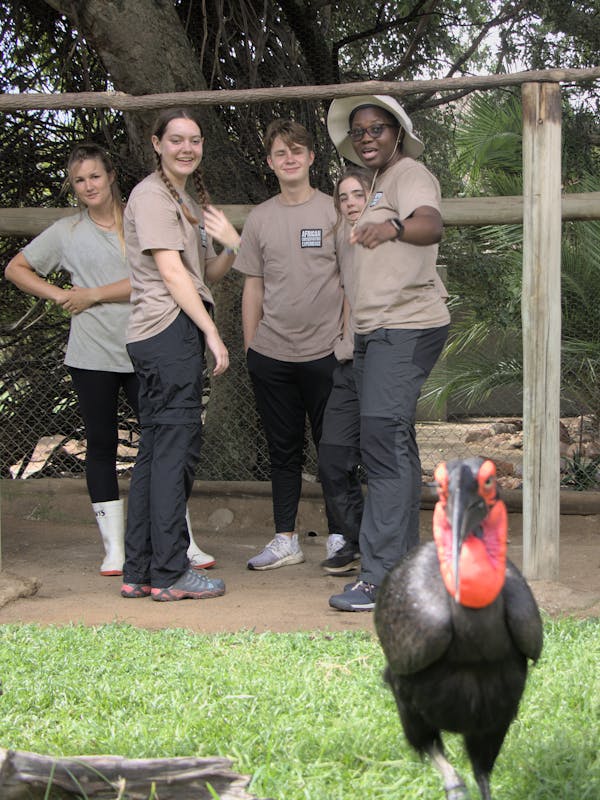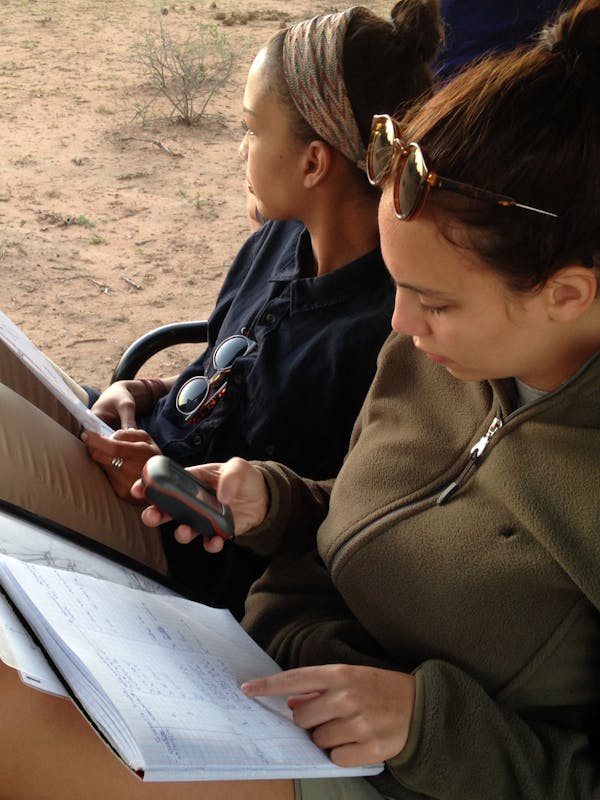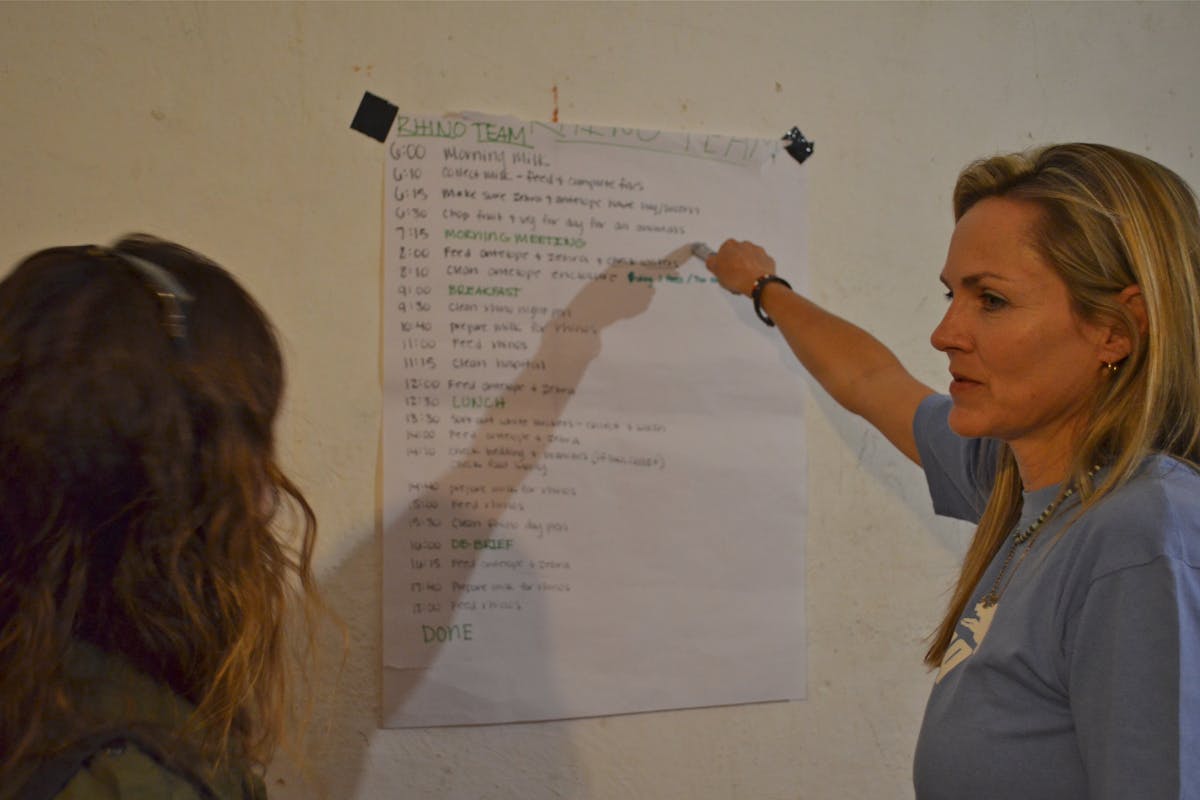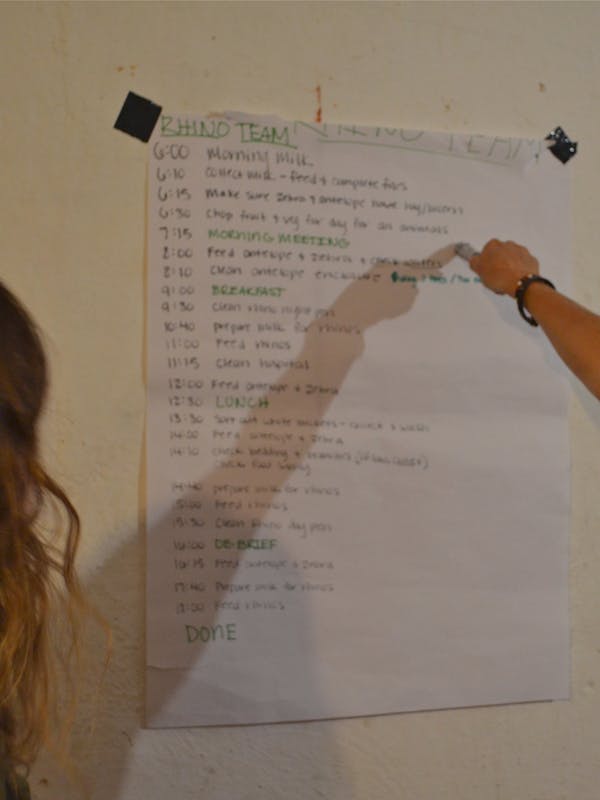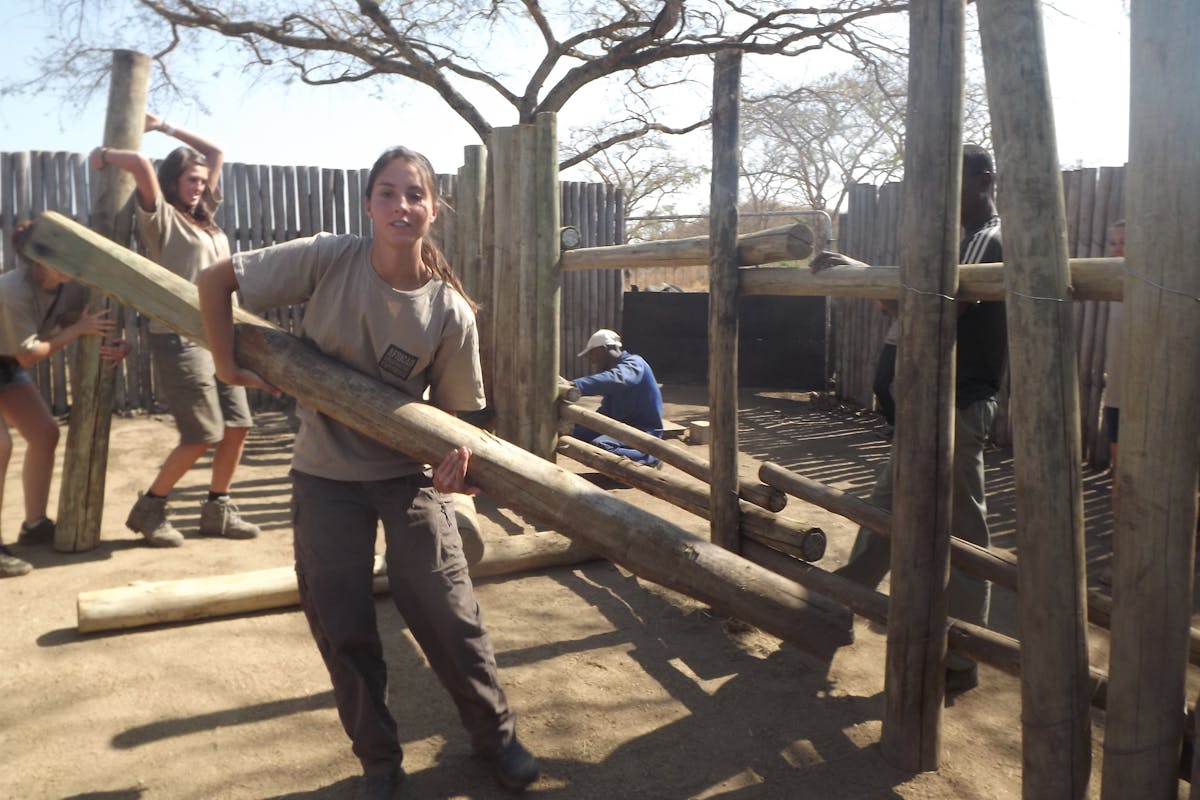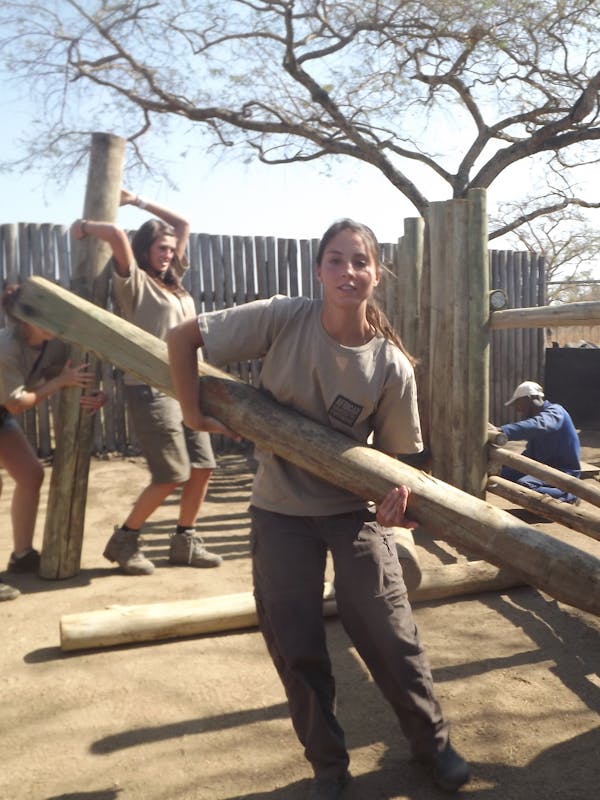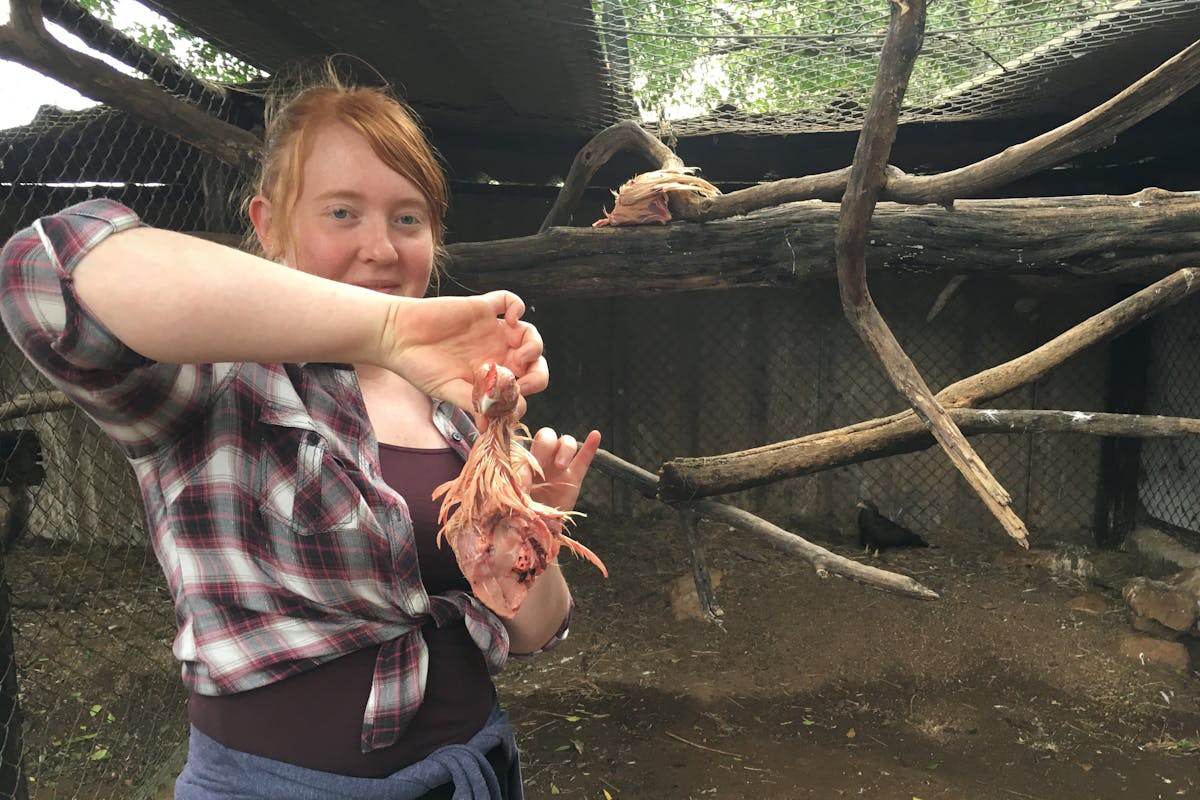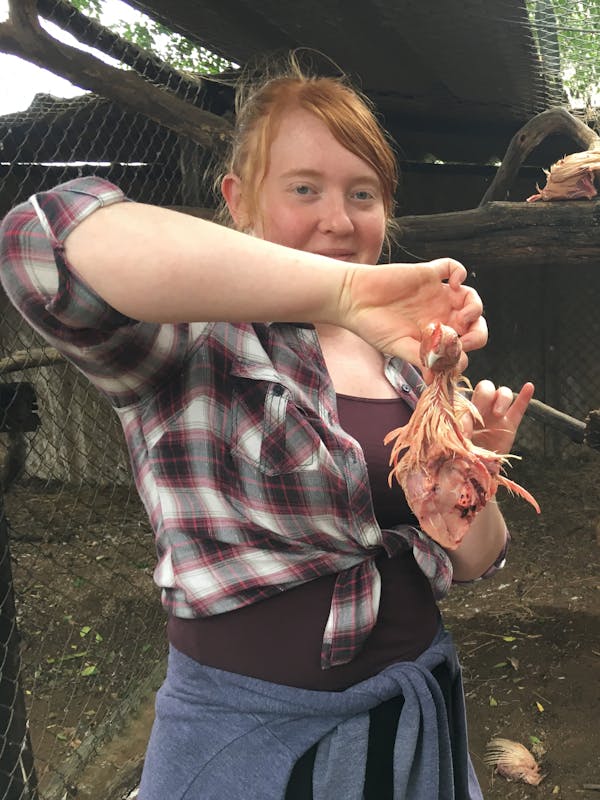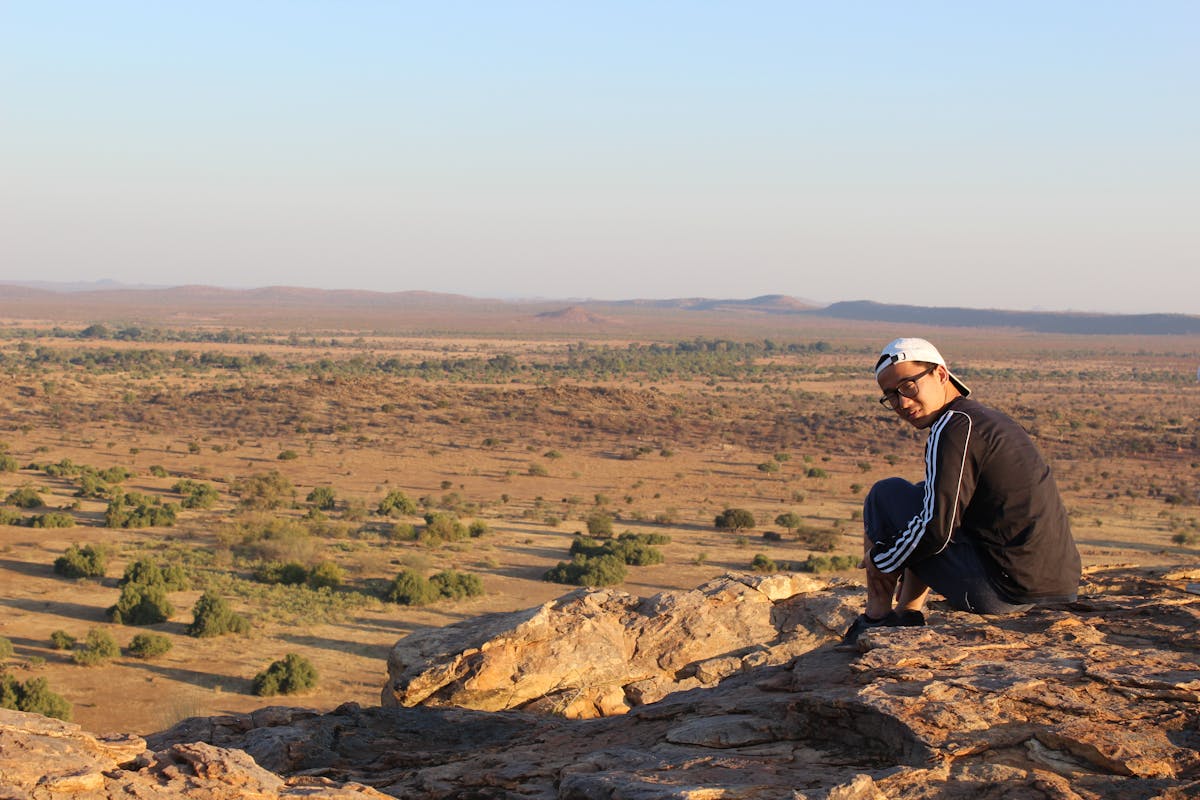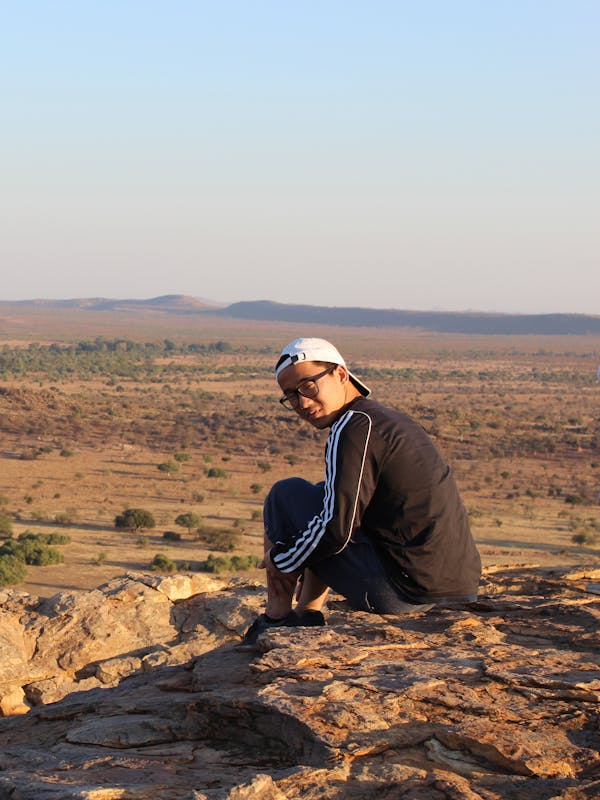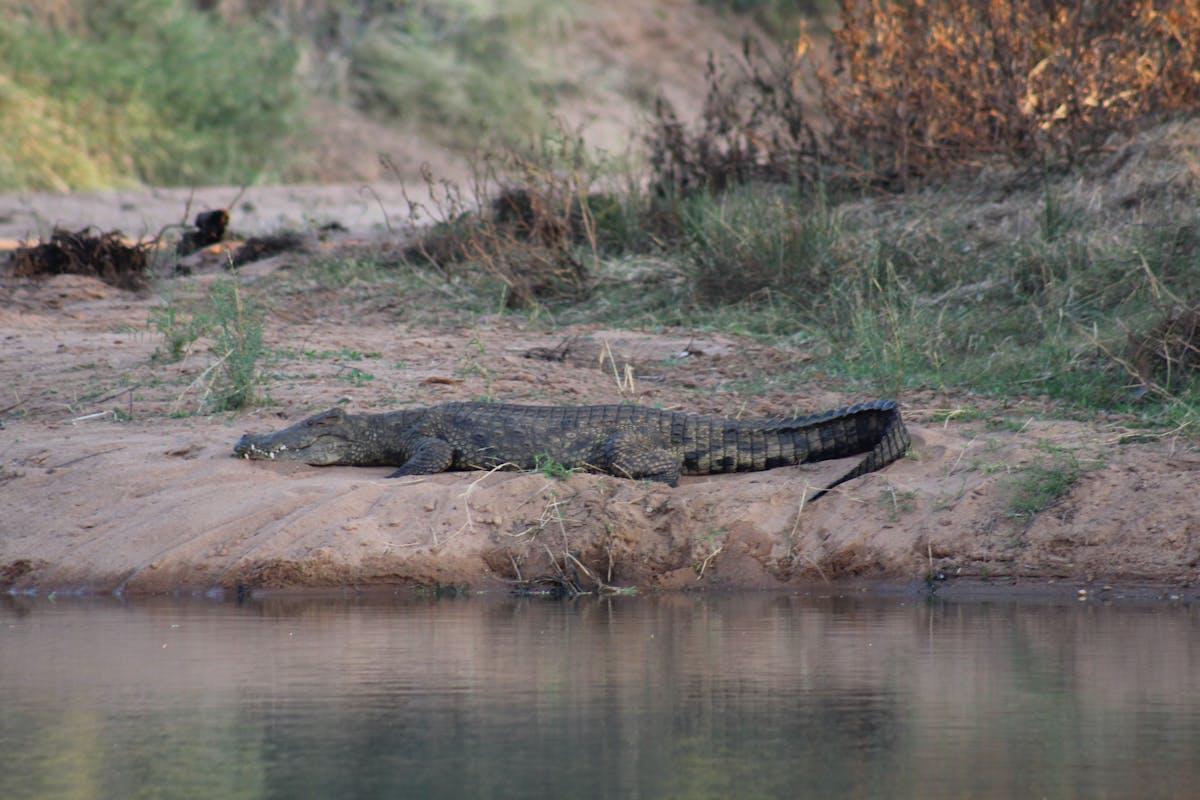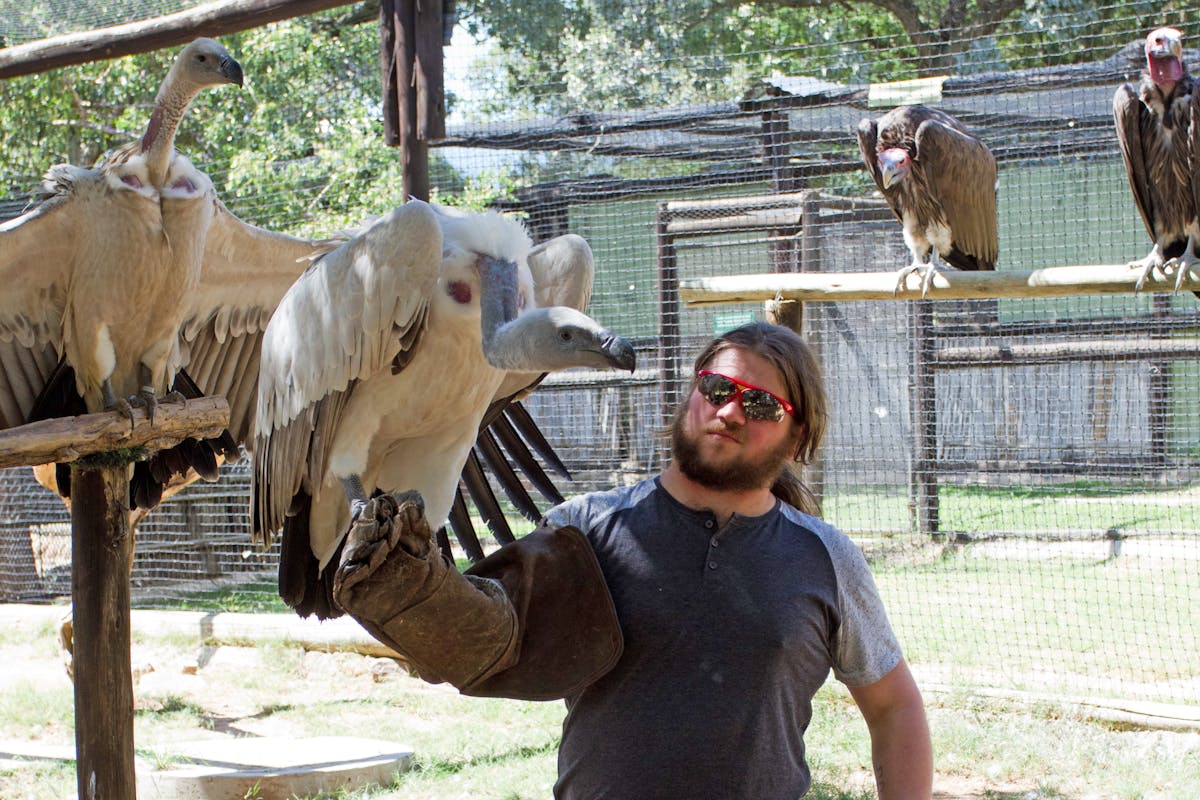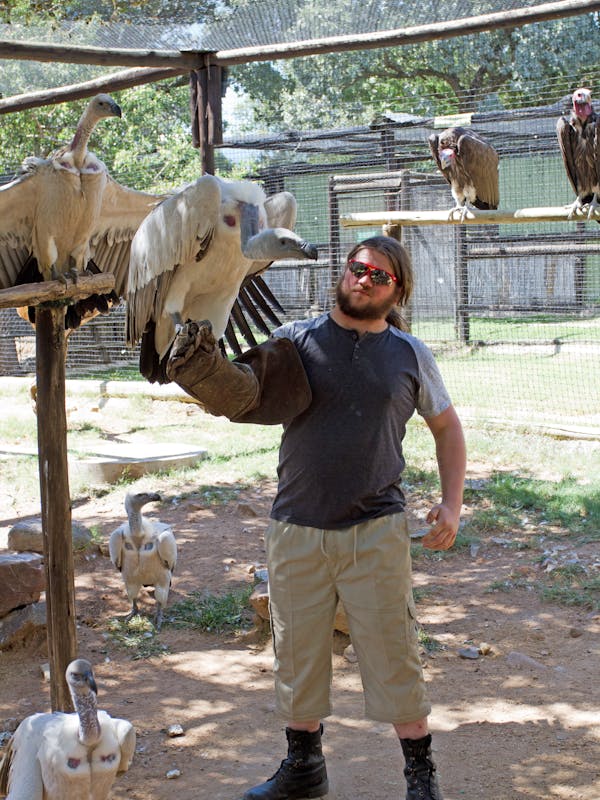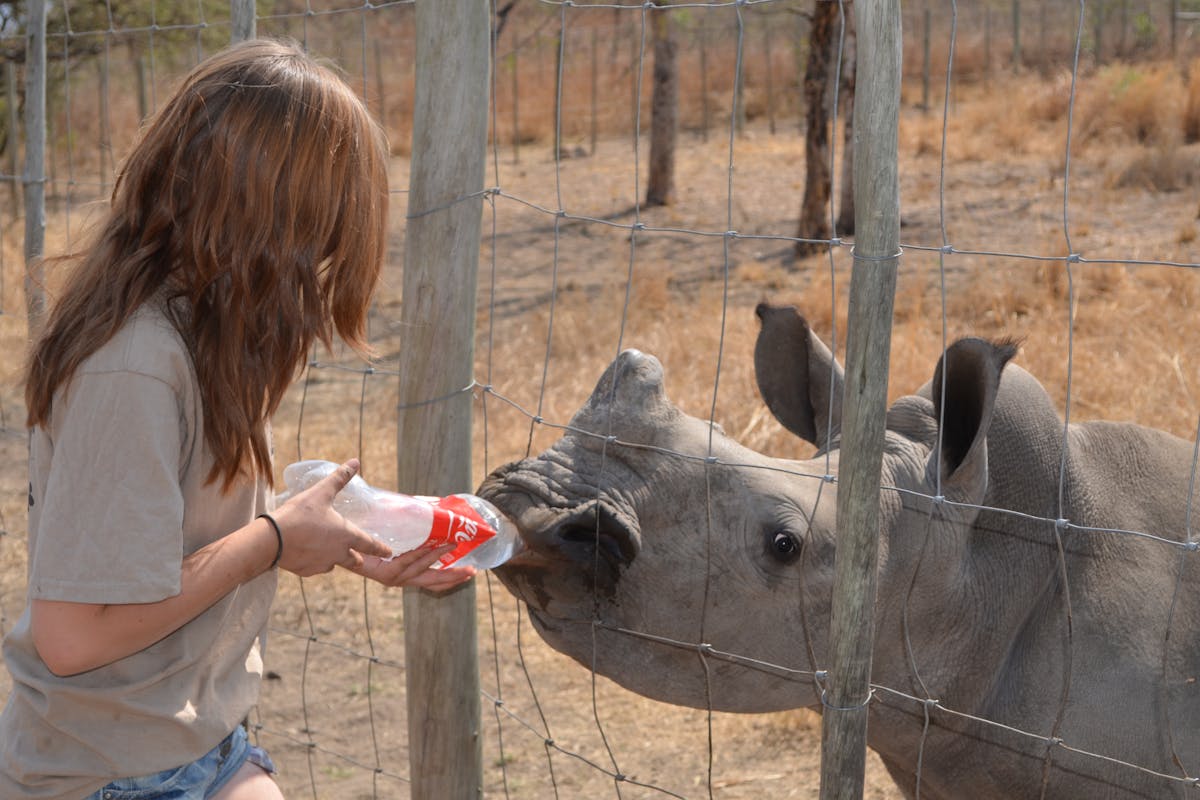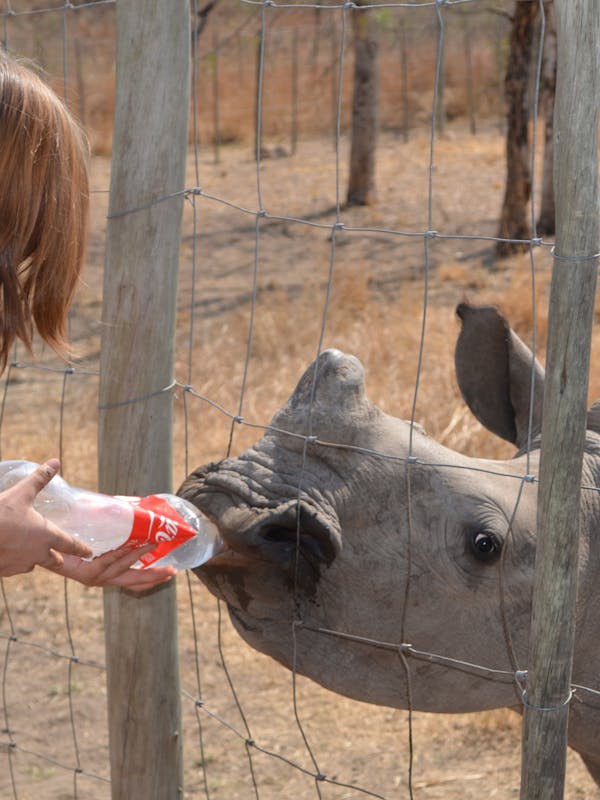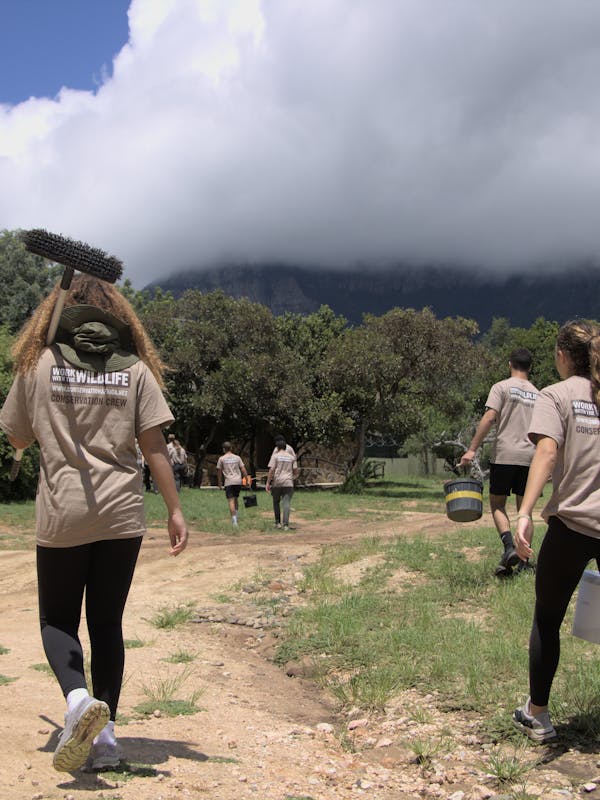Animal Care And Conservation Field Trip
Go beyond the classroom and learn about Africa's wildlife up close.
Our Animal Care And Conservation Field Trip to Africa provides your students the opportunity to gain work experience in both an African animal care and rehabilitation centre and with practical conservation work out in the wild. They will have the chance to work up close with a variety of wildlife, from rhinos and honey badgers to chameleons, that have been injured or orphaned and assist in their daily care.
They will then experience wildlife in its natural environment. The African bush is home to a variety of species, including elephant, rhino, lion, leopard, giraffe, zebra and antelope. They will explore the incredible biodiversity of southern Africa during game drives, bush walks, nights drives and, depending on your bespoke itinerary, a sleep-out under the stars.
Designed to cater for the needs of university, college and school students targeting a career in animal care and husbandry, wildlife management or veterinary nursing, this field trip will give your students a thorough introduction to the diverse wildlife and habitats southern Africa has to offer.
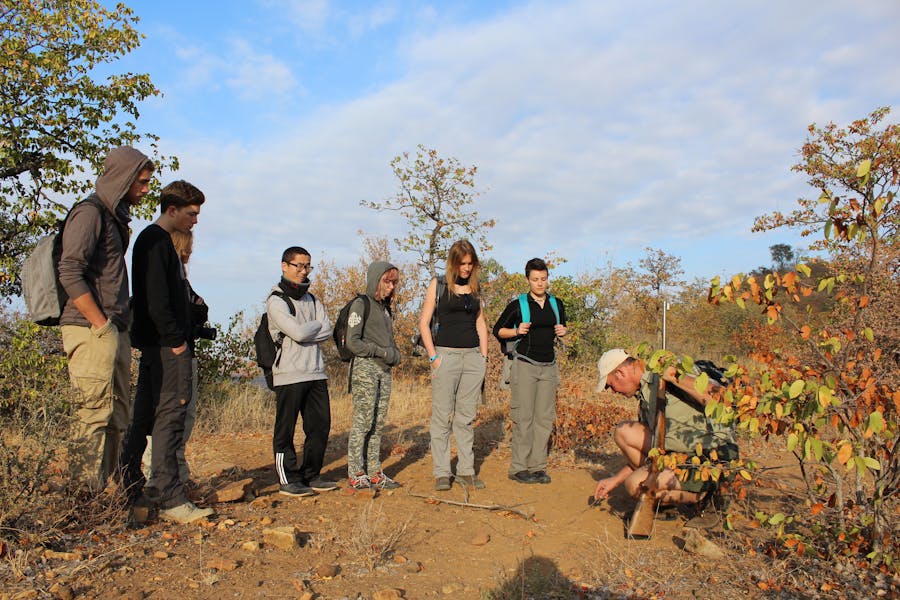
Species
- Rhino
- Elephant
- Lion
- Leopard
- Giraffe
- Honey Badger
- and many more.
Conservation Impact
- Conservation education
- Wildlife research
- Conservation management
Highlights
Work alongside conservation professionals
Your students will join the full-time team in a wildlife care and rehabilitation centre where they willhelp with all the hands-on animal care tasks. Learning from experienced professionals will give them a chance to develop real-world skills in animal welfare and management.
Experience two sides of wildlife care and conservation
Your field trip will introduce your students to life in the African bush where they will research and monitor animals in their natural environment. You will also spend time in a wildlife rehabilitation and care centre, working up close with animals that require treatment and care.
Help save Africa’s threatened wildlife
Monitoring and caring for animal populations and their environments is a vital element of wildlife conservation. Whether your students are using camera traps to monitor species or bottle-feeding an infant rhino, they will be engaged with activities that are both relevant and real.
Practical and theoretical learning
Throughout your expedition, your students will be applying their theoretical learning to real practical problems. They will also have time to debate the ethical questions that working conservationists and biologists grapple with on a day-to-day basis.
Activities
The itinerary of this field trip is divided into two sections. Your students will spend time at a prominent wildlife care and rehabilitation centre. They will also spend time in the bush participating in and learning about practical conservation work. The details of both sections will be tailored to the needs of your group but here is an overview of the activities we offer:
Animal rehabilitation and care
- Hand rearing and care of young animals
- Preparing food for the animals and taking part in the hands-on feeding rounds
- Health checks, basic veterinary assistance and wound dressing
- Cleaning cages and bomas to maintain healthy living environments
- Monitoring the progress of individual animal’s rehabilitation
- Wildlife releases (if any animals are ready during your trip)
- Helping build enclosures, temporary bomas or enrichment material
Wildlife monitoring and practical conservation work
- Using transects and camera traps to survey the seasonal movements and population dynamics of various species
- Using GPS equipment to record wildlife sightings and movement
- Explore the Kruger National Park – one of the highest-density wildlife areas in Africa
- Tracking wildlife by identifying and interpreting their signs
- Identifying the plants, mammals, amphibians, birds, reptiles and insects that inhabit the African bush
- Identifying nocturnal wildlife and learning how to use a spotlight without startling them
- An introduction to astronomy
- Bush orientation including fire building, cooking and indigenous plant uses
Learn
Through a combination of lectures, workshops and practical activities, your students will gain a variety of skills and knowledge. Intended for students at university, college or school level, the educational content of this expedition includes:
Wildlife care
- How to handle and care for a variety of African species including rhino, honey badgers and chameleons
- Animal diets and how to safely carry out feeding rounds
- Caring for orphaned animals including their dietary needs, enclosure cleanliness and enrichment
- Interpreting animal behaviour in a care environment
- Animal husbandry and hand-rearing wildlife
- Assisting with veterinary nursing, treating injuries and dressing wounds
- Observing and assisting with more intensive veterinary treatment
Conservation
- The issues of wildlife poaching and rhino poaching in particular, its history and current status, plus anti-poaching methods used in the field
- Conservation issues that impact wildlife populations such as hunting, wildlife poisoning, the bushmeat trade, habitat fragmentation and drought
- Eco-tourism and its role in bringing money into conservation
Ecology
- The natural environment of elephants, rhino, lions, leopards, antelope and other African species
- Mammal, bird and reptile ecology
- The relationship between predator, prey and plant species
- The impact of one species’ population growth or decline on the ecosystem as a whole
- The role of non-mammal species such as vultures, insects and plants in African ecosystems
- The geology of different regions and how it affects the biodiversity of each area
- Waterhole ecology
Biology
- Mammal, bird and reptile biology
- Natural diets of elephant, rhino, lion, leopard, antelope and other African species
- Physiology of elephant, rhino, lion, leopard, antelope and other African species
- Native African plants, reptiles, amphibians and birds
Behaviour
- Behaviour of animal groups (e.g. hierarchy systems in prides of lions, troops of primates, elephant herds etc.)
- Predator hunting behaviour and the difference between social carnivores such as lions and hyena compared to solitary predators such as leopards and cheetah
- Movement of herd species including elephant, buffalo and antelope
- Breeding behaviour of elephant, rhino, lion, leopard, antelope and other African species
- The behavioural differences between animals in a natural environment and those living in captivity
Safety & Support
All our experiences and field trips meet strict safety guidelines and we provide expert guidance and support, both before and during your field trip.
Read more
Related Projects
Biology And Ecology Field Trip
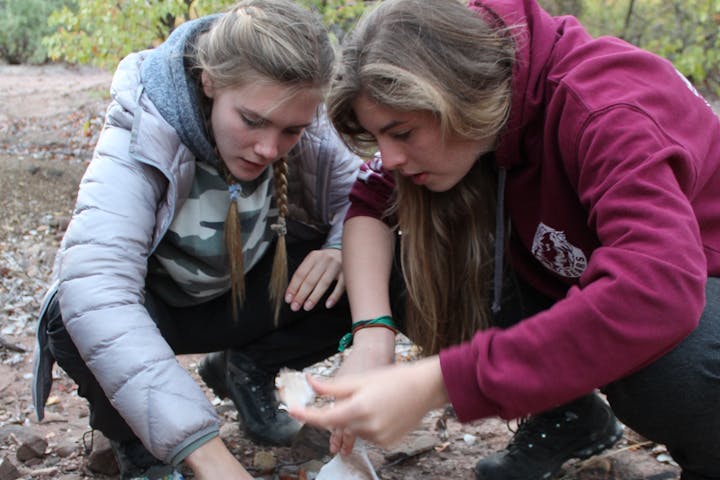
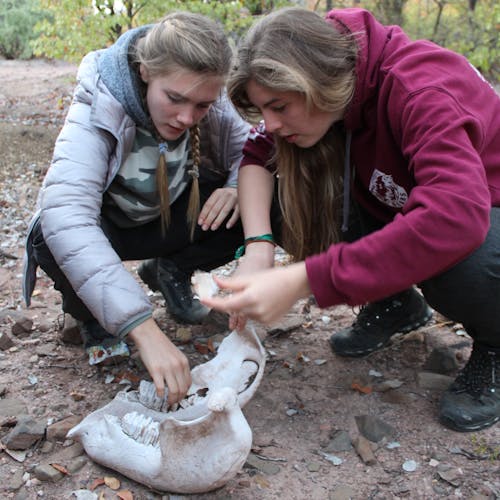
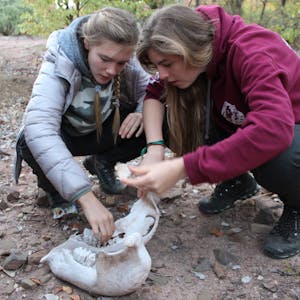
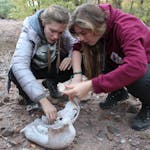
CAS Trip For IB Schools
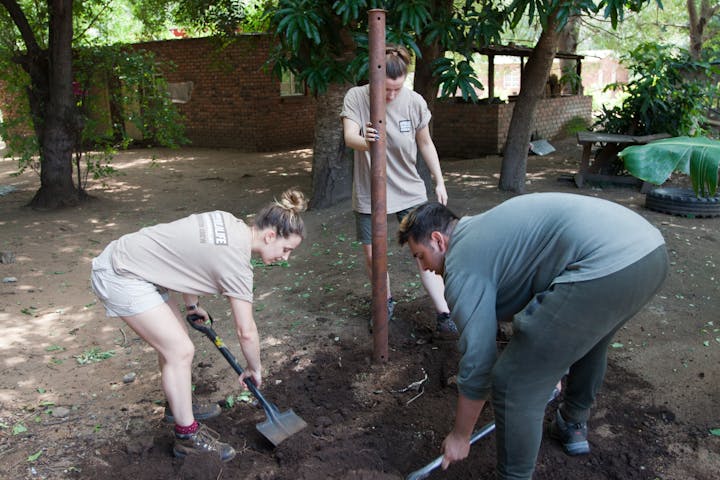
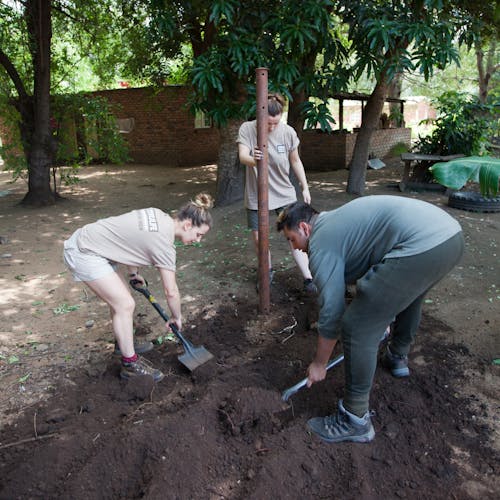
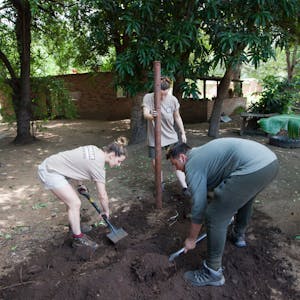
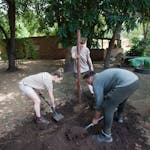
Service Learning Trip
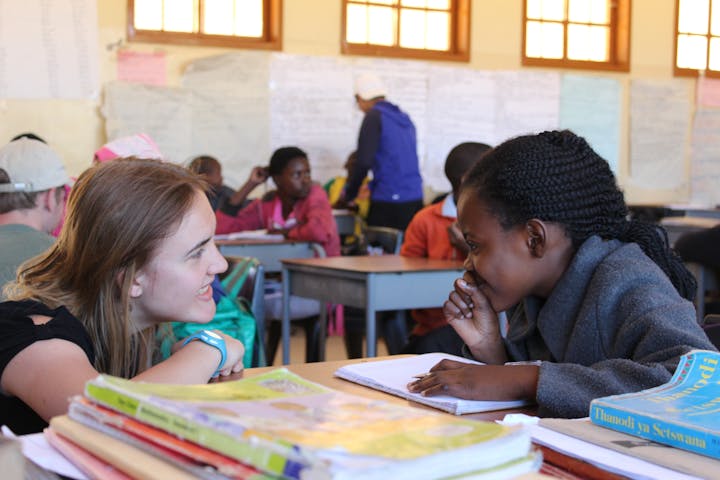
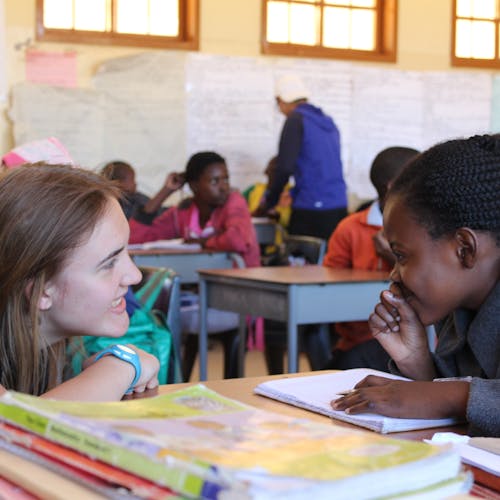
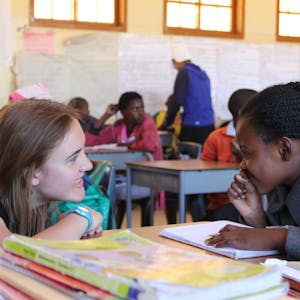
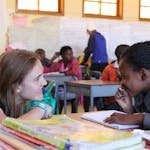
Wildlife Veterinary Trip
